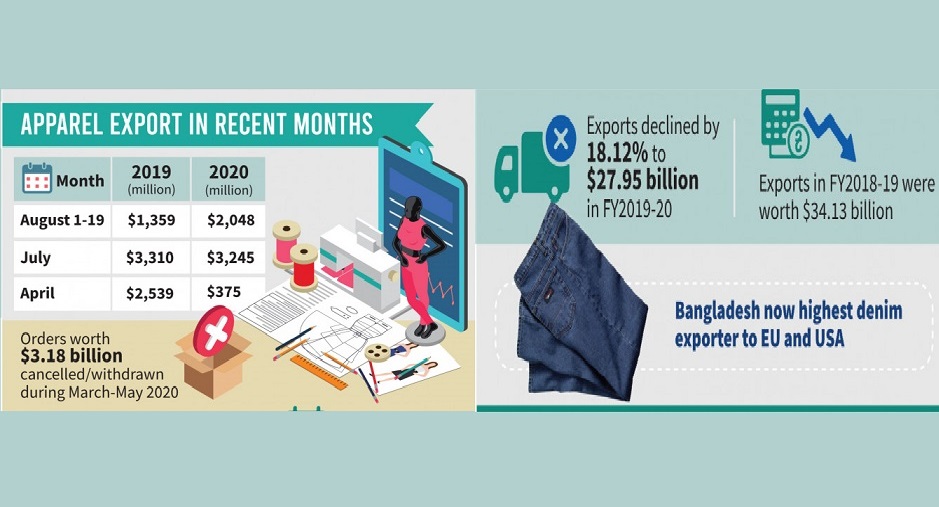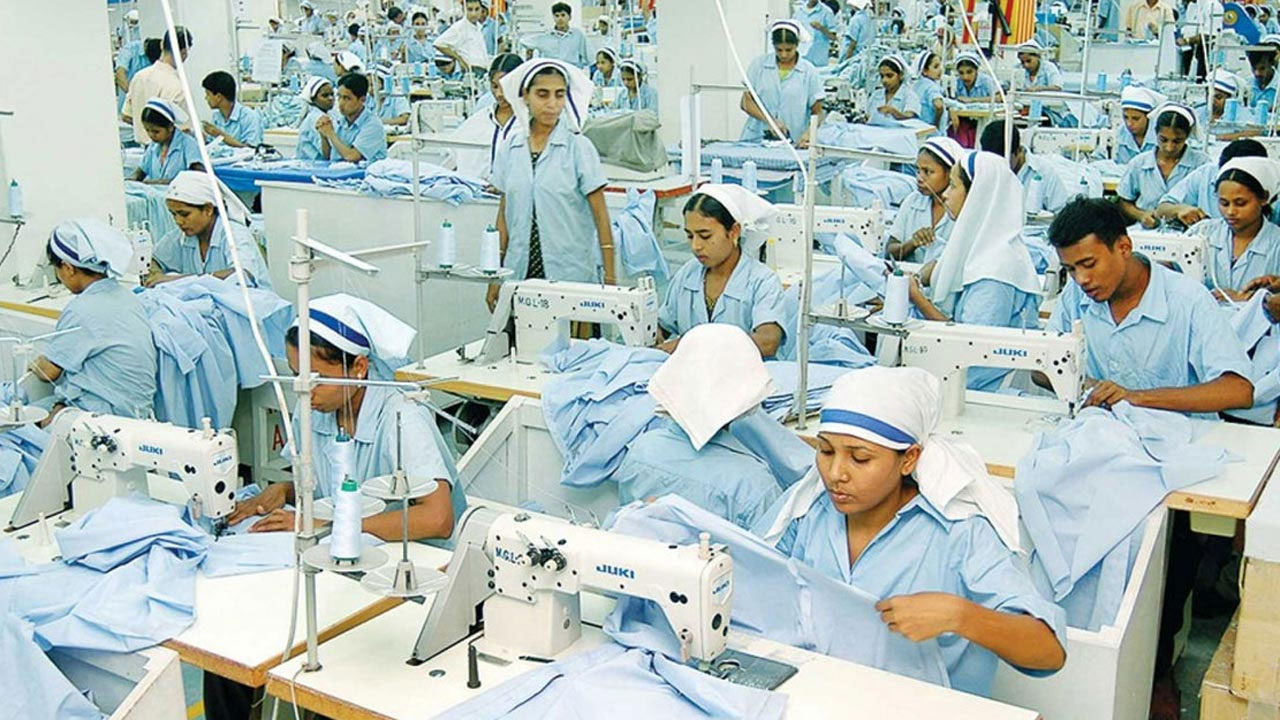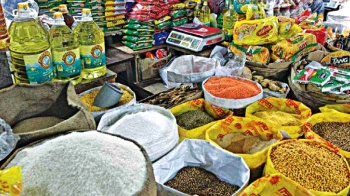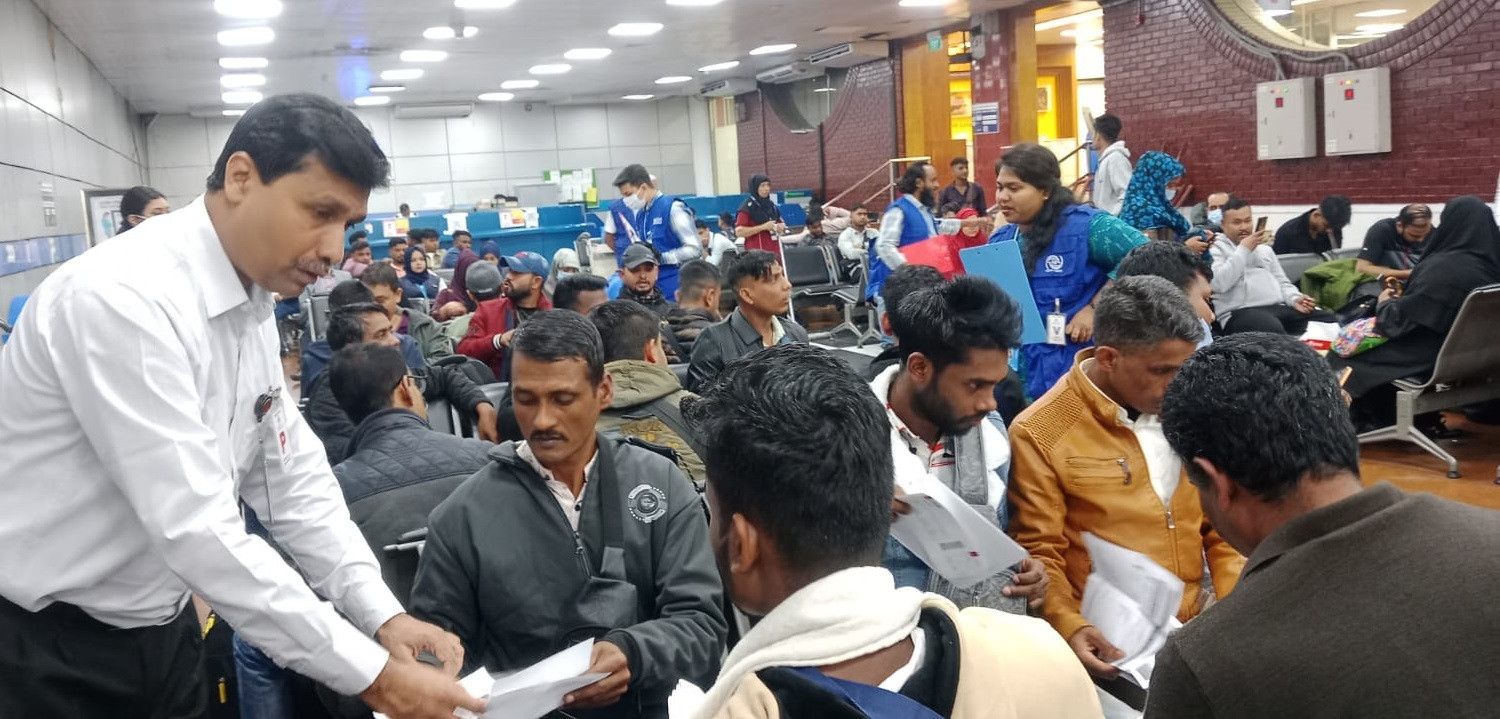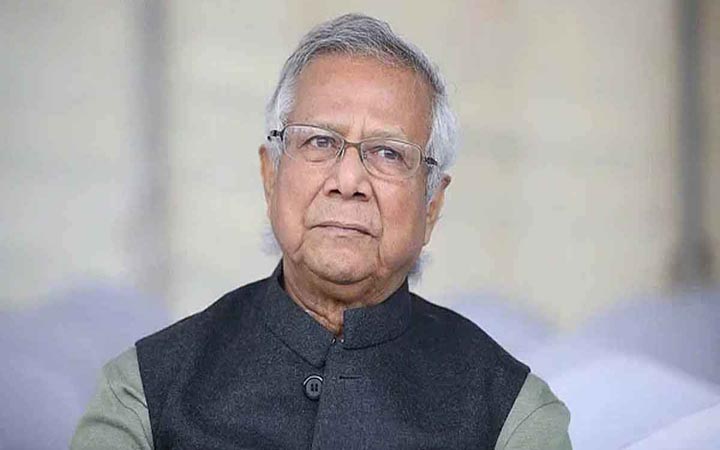The country's apparel exports have seen a big jump with about 51 percent growth during the first 19 days of the current month, compared to that of the same period last year.
This is according to Bangladesh Customs' data on daily exports compiled by the Bangladesh Garment Manufacturers and Exporters Association (BGMEA).
During August 1-19, Bangladesh exported apparel items worth $2,048 million, up from $1,359 million during the corresponding period in 2019.
Experts and apparel entrepreneurs have linked the growth to two chief reasons–the restoration of a larger part of cancelled orders and no disruption to shipments during the Eid holidays.
They hope apparel export earnings may bring good news in the coming days too, riding on Christmas celebrations and shipments for next winter and spring.
However, they say it is very difficult now to make any prediction as the Covid-19 pandemic has wrought a change in all traditional practices.
Typically, apparel exporters face slower pace of exports in September and October, considered a lean period – a dearth in orders. But such a shortage may not occur this year as factories have a good number of orders in their hands, entrepreneurs hope.
Md Shahidullah Azim, managing director of Classic Group, a leading apparel exporter, said, "The growth [in apparel exports] has taken place as the backlog of orders is being cleared now."
He also said about 75-80 percent cancelled orders have been returned to the factories. But the prices of products proposed by the buyers are very poor, which suggests that industry units will operate without any profit.
During the March-May period, export orders worth $3.18 billion were cancelled and withdrawn, according to the BGMEA.
As a result, the RMG sector in April witnessed the lowest ever exports, no more than $375 million. At the end of fiscal year 2019-20, apparel exports declined to $27.95 billion from $34.13 billion in the previous fiscal year.
The European Union is reopening its market, which is why apparel buyers and retailers are placing more orders for the upcoming winter as most of the stores are empty at present, said Fazlee Shamim Ehsan, chief executive officer of Fatullah Apparels Ltd, a pioneer in the knit composite industry in Bangladesh.
At present, most apparel makers are producing garments to clear their backlogs as well as honour new orders. It may require another month to clear all old orders, he added.
"The pandemic has changed all traditional calculations this year, and, also, there may not be any lean period as we have a number of orders for September," said Ehsan, who is also a director of Bangladesh Knitwear Manufacturers and Exporters Association.
In July, apparel export earnings made a turnaround after a big fall in April and May, said Arshad Jamal Dipu, chairman of Tusuka group, a leading apparel exporter.
European Union markets are also coming back to life despite the threat of a second wave of Covid-19, he said, adding that stores in Europe are reopening and online sales too are enjoying high growth.
Buying capacity in the US remains unchanged due to some stimulus packages undertaken by the country's government, he added.
"We are mainly producing mass market products, such as basic apparel items. People have a demand for these kinds of basic items even during a pandemic," said Dipu, who is also a BGMEA vice president.
This export growth has happened as a large segment of cancelled orders has come back. The Eid-ul-Adha vacation this year fell between July and August and impacted exports less than those of last year, said Dr Ahsan H Mansur, executive director of Policy Research Institute (PRI), a local think tank.
The western economy is gradually turning around, meaning that many more new orders may be placed. Buyers have already placed new orders and the result may be reflected in two months, predicted the researcher.
On the other hand, a number of buyers are shifting from China to other sources, notably Vietnam and Bangladesh, due to the prevailing tension between Washington and Beijing, said the PRI's executive director.
China is also moving to high value apparel due to a workers' wage hike, he said, adding, "If Bangladesh can grasp one to two percent of the Chinese share by diverting those orders to the country, it will be a big jump for the apparel industry."
"If we can bring some investments to our textile industry, those that are shifting from China will be more effective in the long run. But the reality is that most of those investments are going to Vietnam," said Dr Mansur.
Shipments for next spring and winter will begin in November, which will help to boost apparel export earnings in the coming days, he added.


